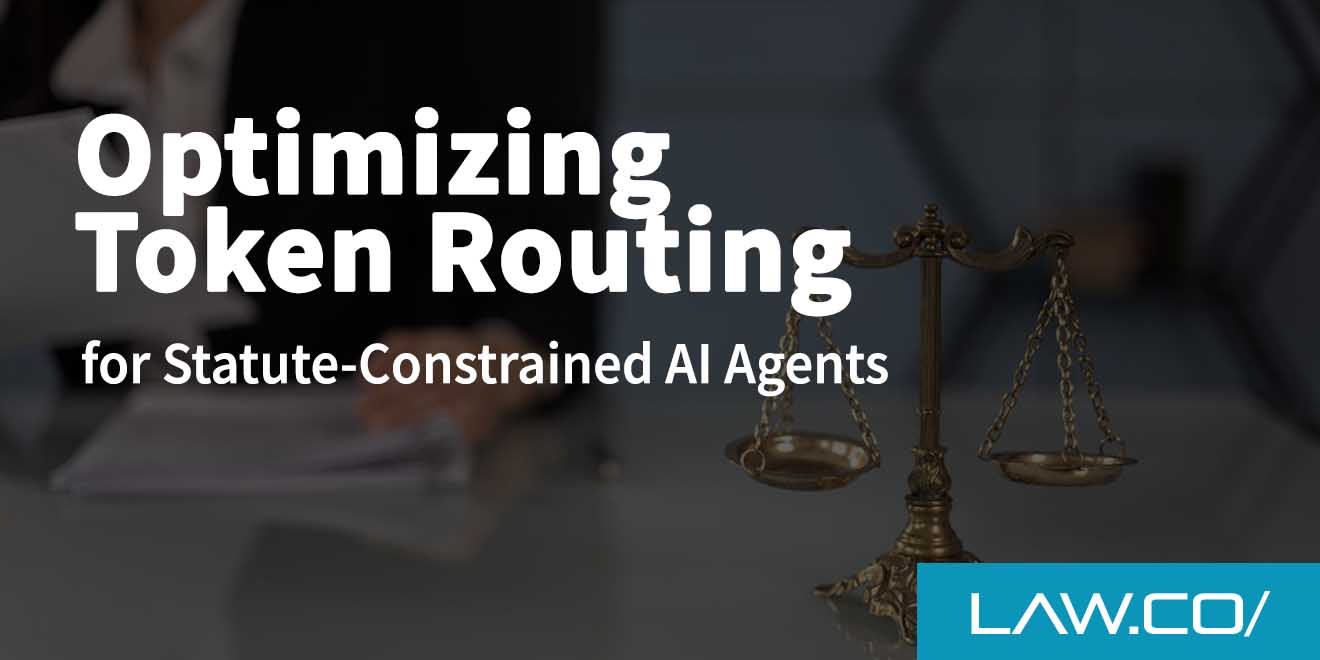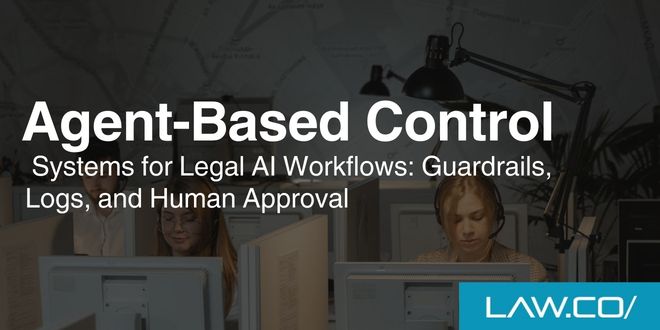

Best Law Practice Management Software: Top 20 Legal Software Options for 2024
You may have aced your way through law school.You may be a highly competent, highly professional attorney.But that doesn't mean you'll be able to run a practice easily.Building and operating a practice is more about business acumen than legal knowledge, presenting challenges to even the most impressive lawyers in the industry.With the need for case management, accurate time tracking, client management and intake, accounting and billing, and other needs, it's easy to feel overwhelmed.Even if you know what you're doing, inefficiencies can rob you of countless hours of time.The solution is to use law practice management software (LPMS).As the name implies, this genre of software is designed for lawyers and law practices, giving them access to features, tools, add-ons, and integrations that make running a legal business much more accessible and streamlined.But what exactly is law practice management software?What are the best law practice management software options for 2024?And how should you choose the best LPMS platform for your law practice?
The Basics of Law Practice Management Software (LPMS)

SourceLaw practice management software comes in many forms, and is offered by dozens of different development companies. If you have the budget for it, you can even build a custom platform of your own.The exact features, design, and pricing of the platform is going to be dependent on the developers offering it. But generally, you'll find some combination of the following features:
- Case management. Case management features allow you to track case chronology, stay organized as you follow cases through to completion, and document your successes along the way.
- Client management. Many LPMS platforms offer robust client management, similar to a client relationship management (CRM) platform. You can keep track of all your clients’ information and access that information whenever you need it.
- Client onboarding/intake. Client onboarding and intake features are also ideal for helping clients become familiar with your processes, and guiding them through introductory steps such as filling out the proper paperwork.
- Project/task management. Project and task management are critical for staying organized, especially if you find yourself overwhelmed with work. It's also useful for delegating administrative tasks and keeping your team members productive and accountable.
- Time tracking. Most law practices depend on accurate time tracking for accurate billing, so legal practice management software platforms usually have some form of automated time tracking to make this form of accounting much easier.
- Invoice processing and accounting. In line with this, most modern LPMS platforms offer invoice processing. Some also have built-in features for collecting payments online, and some even have fully functional business accounting features.
- Templates and document composition. Creating documents is much easier with an LPMS platform that offers templates and tools for document composition. Document review tools are also available on most legal practice management software platforms.
- Document storage and organization. You'll also have features for storing documents and staying organized with all your information and materials.
- Scheduling. Scheduling is a top priority for busy lawyers and other legal professionals, and LPMS platforms try to make it easy to create schedules with no conflicts and coordinate with others.
Ultimately, the combination of these features will help you:
- Save time. Many of these features, especially those that attempt to automate busy work, have the potential to save you time. This way, you can focus on your most important work, including client relationship management and billable hours.
- Save money. In many cases, these tools can save you money. Instead of paying someone to do the work, or using a smattering of different online tools, you can use a single, centralized platform to accomplish most of your priorities.
- Boost productivity. Everyone loves the idea of getting more done in a day, but with an LPMS platform, you can actually do it. Law practices that use these types of platforms tend to be able to take on more work.
- Organize wisely. Staying organized is indispensable as a lawyer, whether you're trying to gather information for an upcoming trial or simply remember the name of a client you met last year. LPMS platforms make it easy and intuitive to stay organized.
- Bill and account accurately. The financial side of running a law practice is also vital to your success. That's why so many LPMS platforms have tools designed to make it easier to practice accurate billing and accounting.
- Streamline client service. You also need to prioritize client service if you want to attract more clients, earn more referrals, and keep your clients happy. CRM-like features, found in most modern LPMS platforms, make this a breeze.
The Best Law Practice Management Software (LPMS) of 2024
These are some of the best law practice management software (LPMS) platforms of 2024:
- Clio. Clio is a multifunctional LPMS platform that can be used by practically any type of practice. Completely cloud based, Clio offers contact management, time tracking, billing and accounting, online payment processing, and more. It also comes with a free mobile app for clients. Pricing starts at $49 per user per month (or $39 when billed annually).
- Smokeball. Smokeball is perhaps best known for its intuitive, simple legal billing software, but it also has features designed to improve your productivity, profitability, and organization. Automated time tracking, lead management, workflow optimization, and reporting are just the beginning – and it’s ideal for small law firms. Contact for pricing.
- Lawcus. With Lawcus, you’ll gain access to case management, contact management, client intake, billing and accounting, scheduling, and even automation in the form of rules-based triggers for your most repetitive workflows. It’s potentially useful for practices of all shapes and sizes and is highly customizable as well. Pricing starts at $39 per user per month.
- CASEpeer. Built primarily for personal injury lawyers, CASEpeer is extremely easy to use and offers case management, client management, time tracking, and more. It also offers litigation tracking, settlement tools, and streamlined client intake and management to process high volumes of new clients. Pricing starts at $85 per user per month.
- MerusCase. MerusCase is built to be highly customizable, so you can get access to all the features you need for your law firm. This also makes it highly scalable, so you can start with the basics and continue adding more as your law firm grows. Unique features include predictive searching, batch scanning, and automation. Contact for pricing.
- SmartAdvocate. SmartAdvocate can be used for many types of practices, but it’s especially useful for firms in the personal injury arena. This LPMS platform offers most of the features you would expect from an LPMS platform, along with a host of workflow automation tools and dedicated pages for insurance policies. Contact for pricing.
- Legal Files. Legal Files is primarily a case management software platform with plenty of other features, such as docketing, task and team management, and even pleadings index reports. It’s designed to be helpful for government agencies, law firms, clinics, universities, and corporations – so it’s not exclusive to law practices. Contact for pricing.
- Tabs3. Tabs3 currently has thousands of users and is primarily targeted to small and midsized practices. It provides you with access to features like billing and accounting, matter management, and dashboards and reporting. It makes it easy to stay productive and organized. Contact for pricing.
- SimpleLaw. SimpleLaw has a full suite of powerful tools for managing your practice, from case management to collecting online payments. It also grants you access to on-demand paralegal support, conflict checking, and billing support. As an added bonus, it hosts an online lawyer directory, so you can advertise your profile for free by signing up. Pricing starts at $49 per user per month (or $39 when billed annually).
- Firm Central. Firm Central is a unique LPMS platform on this list because it’s offered by Thomson Reuters, and it’s generally recommended only for lawyers who are already familiar with Westlaw and other Thomson Reuters products. These products rely on each other and are very useful, but they’re hard to use in isolation. Pricing starts at $40 per user per month.
- Rocket Matter. If you’re a small firm or a solo practitioner, you should consider Rocket Matter. Admittedly, it’s not as comprehensive as some of the other options on this list, but as a smaller operation, you may not need all those features. This platform is highly useful for boosting productivity and automating busy work. Pricing starts at $35 per user per month.
- AbacusLaw. AbacusLaw offers a host of familiar features, including case chronology, billing and accounting, and settlement statement generation. It’s highly customizable, so you can construct it according to your needs. It even offers the option of keeping it on a private, fully managed cloud. Contact for pricing.
- CaseFleet. CaseFleet is another LPMS platform with robust task management, case reporting, automatic transcription, and a host of other useful tools for lawyers and other legal professionals– but it is missing billing and accounting features. That said, its document review, search features, and case chronology tools are impressive. Pricing starts at $40 per user per month (or $30 when billed annually).
- MyCase. MyCase is a cloud-based LPMS platform with financial and case tracking, time and expense tracking, built-in invoicing, and many more features. It also promises top-grade security with custom web development services (if you need them). All these features are available with a single price. The cost is $59 per user per month (or $49 when billed annually).
- PracticePanther. With PracticePanther, you can get started almost immediately, as it’s designed to be highly intuitive. It offers case management, client management, built-in payments, and much more – along with robust security to keep your client information and practice data safe from would-be cybercriminals. Pricing starts at $49 per user per month.
- Centerbase. Designed for midsized law firms, Centerbase is meant to be an all-in-one software solution for your law practice management system. It offers a comprehensive suite of features and tools like document management, time tracking, billing and accounting, and even streamlined client communication. The basic plan requires at least five users. Pricing starts at $59 per user per month.
- Actionstep. Actionstep is unique in that it’s designed to be highly flexible and scalable. Big picture, this LPMS platform offers all the features your law firm needs to stay productive and efficient – and you can gradually scale up as your firm grows, making it highly appealing to new and growing business owners in the space. Pricing starts at $49 per user per month.
- App4Legal. App4Legal offers two primary products: a conventional, comprehensive LPMS platform with the typical suite of features, and a dedicated Contract Management platform designed to help you manage all your contracts and documents. You can get access to even more features with customizable modules and add-ons. Pricing starts at $24 per user per month (or $19 when billed annually).
- CARET Legal. Offering end-to-end LPMS features, CARET Legal includes settlement management tools, business accounting, scheduling, a fully functional CRM, and even email management. There’s also a mobile app available so you (and conceivably, your remote team) can stay productive on the go. Pricing starts at $69 per user per month (or $59 when billed annually).
- Filevine. Filevine is a platform with more than 50,000 users. But while it’s widely used, it’s mostly ideal for small- to mid-sized practices. Designed to be totally end-to-end, Filevine has almost all the features you could want – including business analytics – and offers networking and referrals through their community. Contact for pricing.
Making the Decision: How to Choose the Best Law Practice Management Software (LPMS)
With so many viable options on the table, how should you choose the right law practice management software for your law firm?
- Analyze your needs. Before you review these platforms in any further detail, it's important to take a moment to analyze your needs. When it comes to purchasing legal practice management software for a business, some business owners intuitively jump for whichever platform offers the most features – but this isn't always the right move. There's no reason to pay for features you aren't going to use or need, so it's usually more effective to identify your most critical needs first.
- Set your priorities. Next, set your priorities. Are there certain features that are indispensable? Are there certain features that are nice to have, but not strictly necessary? Which is more important: staying under budget or getting access to the best available features? Would you rather have more automation or a better designed, more intuitive user interface? If you know your priorities going into the decision, you'll have a much easier time deciding between similar options.
- Get hands-on with multiple options. Reading about the features and advantages of different platforms on a list like this is helpful, but it's even more valuable to get hands-on with all these options. Most LPMS developers offer free trials or demos of their platforms, or both, so you can see what these tools are like in action.
- Collect reviews and testimonials. After narrowing down your list, start collecting reviews and testimonials. What do the people who use this platform regularly have to say about it? Don't be afraid to tap into your network of peers; do you know anyone who uses one or more of these platforms? Would they be willing to recommend it?
- Consider the future. Finally, think about the future. Some of these platforms are designed to be modular and scalable, so you can make upgrades as your law firm grows. Some are designed almost exclusively for small firms and solo practitioners. Some of these platforms have ongoing developer support, with continuous releases of new features, while others remain a bit more stagnant. Some of these options will support your future better than others.
Are you struggling to get your law practice off the ground, particularly when it comes to legal practice management software?Do you wish you had more expert advice to support you as you build your reputation, attract more clients, and compete with your top rivals?Law.co can help. Contact us for a free consultation today!

%201.svg)










